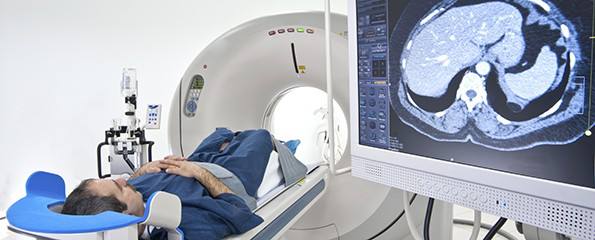Link Between Illnesses May Help Doctors Catch Some Cancer Earlier
In a study published in Clinical Gastroenterology and Hepatology, Saint Louis University researchers have found a link between acute pancreatitis (inflammation of the pancreas) and pancreatic cancer, a finding which may eventually lead to some pancreatic cancers being detected earlier.
Principle investigator Banke Agarwal, M.D., associate professor of gastroenterology and hepatology at Saint Louis University, says the study builds on earlier research suggesting a connection between the two illnesses.
“Our study demonstrates that there is a much higher risk of pancreatic cancer in patients with acute pancreatitis than commonly believed,” Agarwal said.
Pancreatic cancer, the fourth most common cause of cancer death in the U.S., is usually diagnosed at an advanced stage because it has few early warning signs and no established screening method.
Only 4% of those who have pancreatic cancer survive five or more years after diagnosis. This low survival rate is in large part due to the advanced stage when most pancreatic cancer is diagnosed. Surgical removal is the only chance to cure pancreatic cancer, but surgery is not an option in cases where the cancer has spread. At diagnosis, fewer than 20% of cases of pancreatic cancer are still localized enough to be removed surgically.
Prior to this study there was some evidence of a higher incidence of pancreatic cancer in patients who are diagnosed with acute pancreatitis. What was unknown, however, was the rate that acute pancreatitis precedes a diagnosis of pancreatic cancer and the time between these two diagnoses.
Using the electronic health records of patients from the Veterans Health Administration between 1998 and 2007, researchers were able to determine the likelihood that a diagnosis of pancreatic cancer follows a diagnosis of acute pancreatitis, how often pancreatic cancer is preceded by acute pancreatitis, and the time between an initial episode of acute pancreatitis and diagnosis of pancreatic cancer. In addition, researchers identified patient characteristics most associated with a greater pancreatic cancer risk.
The study shows that in patients older than 40 with an episode of acute pancreatitis, 1.5% were eventually diagnosed with pancreatic cancer compared to 0.13% of patients without a prior episode of acute pancreatitis. In addition, 12.1% of patients with pancreatic cancer had an episode of acute pancreatitis prior to the diagnosis of their cancer. Age also was found to significantly impact the risk of pancreatic cancer, with patients older than 70 having almost four times the risk of being diagnosed with pancreatic cancer compared to patients between the ages of 41 and 50.
In addition, of all the cases of pancreatic cancer diagnosed after an episode of acute pancreatitis, 55% were diagnosed three to 24 months after the episode of pancreatitis. This result indicates that many cases of pancreatic cancer potentially could have been diagnosed earlier had patients with acute pancreatitis been evaluated for pancreatic cancer.
In light of the late stage when pancreatic cancer is typically diagnosed and the significant rate of people diagnosed with acute pancreatitis that are subsequently diagnosed with pancreatic cancer, the study’s authors suggest that patients over the age of 40 with acute pancreatitis should be evaluated for pancreatic cancer with esophageal ultrasound.
“As a point of reference, it’s useful to consider that the relative number of patients with acute pancreatitis who are subsequently diagnosed with pancreatic cancer is greater than that of cancer discovered during colonoscopy screening,” said Agarwal.
(Source: Saint Louis University, Clinical Gastroenterology and Hepatology)
Dates
Tags
Created by:

 Login
Login














